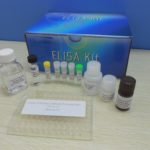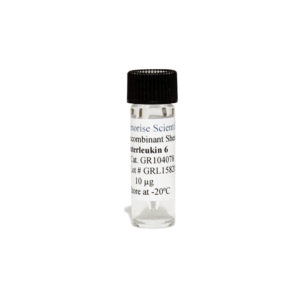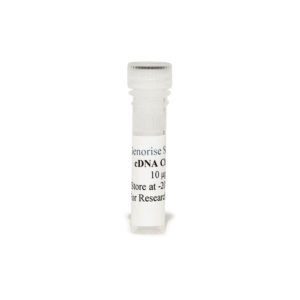Recombinant Human SPINK1 Protein
$99.00 – $2,280.00
The recombinant human SPINK1 protein is derived from in vitro expression of human SPINK1 gene in E. coli and purified using his-tag affinity column and can be used in multiple applications such as cell culture, ELISA and western blot.
Alternative names for SPINK1: Pancreatic secretory trypsin inhibitor, PSTI, serine protease inhibitor Kazal-type 1, tumor-associated trypsin inhibitor, TATI
This product is for Laboratory Research Use Only not for diagnostic and therapeutic purposes or any other purposes.
- Description
- Product Citations
- Reviews (0)
Description
Genorise Recombinant Human SPINK1 Protein Summary
Alternative names for SPINK1: Pancreatic secretory trypsin inhibitor, PSTI, serine protease inhibitor Kazal-type 1, tumor-associated trypsin inhibitor, TATI
Product Specifications
| Purity | > 95%, by SDSPAGE under reducing conditions and visualized by silver stain. |
| Endotoxin Level | < 1 EU per 1 μg of the protein by the LAL method. |
| Activity | Measured by its ability to inhibit trypsin cleavage of a fluorogenic peptide substrate, McaRPKPVE-Nval-WRK (Dnp)-NH2. The IC50 value is 12 nM, as measured under the described conditions. |
| Source | E. coli derived human SPINK1 |
| Accession # | NP_001341895.1 |
| N-Terminal Sequence Analysis | Met |
| Amino Acid Sequence | Met1-Ala79 |
| Predicted Molecular Mass | 9 kDa |
| SDS-PAGE | 9 kDa, reducing conditions |
Background:
Pancreatic secretory trypsin inhibitor (PSTI) also known as serine protease inhibitor Kazal-type 1 (SPINK1) or tumor-associated trypsin inhibitor (TATI) is a protein that is encoded by the SPINK1 gene.[1] Mutations in SPINK1 has been associated with hereditary pancreatitis and tropical pancreatitis. Trypsinogen is normally created and stored an inactive zymogen of trypsin in the pancreas, but occasionally will autoactivate itself. PSTI serves to cleave prematurely activated trypsin to prevent the enzyme from causing cellular damage to the organ. Without the function of PSTI, the pancreas is subject to repeated episodes of damage.[2] It has also been associated with prostate cancer.[3] SPINK1 is secreted from pancreatic acinar cells into pancreatic juice. It is thought to function in the prevention of trypsin-catalyzed premature activation of zymogens within the pancreas and the pancreatic duct. Mutations in SPINK1 gene are associated with hereditary pancreatitis and tropical calcific pancreatitis.[4] SPINK1 contributes to proliferation and clonal formation of HT29 cells through Beclin1 associated enhanced autophagy.[5] High expression of serine protease inhibitor kazal type 1 predicts poor prognosis and promotes the progression and invasion of oral tongue squamous cell carcinoma.[6]
References
- Yamamoto T, et al. (1985). Biochemical and Biophysical Research Communications. 132 (2): 605–12.
- Marchbank T, et al. (1998). Digestion. 59 (3): 167–74.
- Pfützer RH, Whitcomb DC (2002). Pancreatology. 1 (5): 457–60.
- Witt H, et al. (2000). Nature Genetics. 25 (2): 213–6.
- Hu,N.A., et al. (2023) Oncol Res 30 (2), 89-97.
- Wang,S., et al. (2024) Arch Oral Biol 164, 106003.
Product Citations
Be the first to review “Recombinant Human SPINK1 Protein”
You must be logged in to post a review.



























Reviews
There are no reviews yet.